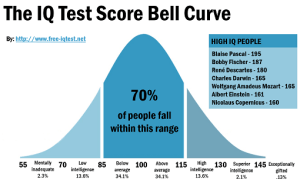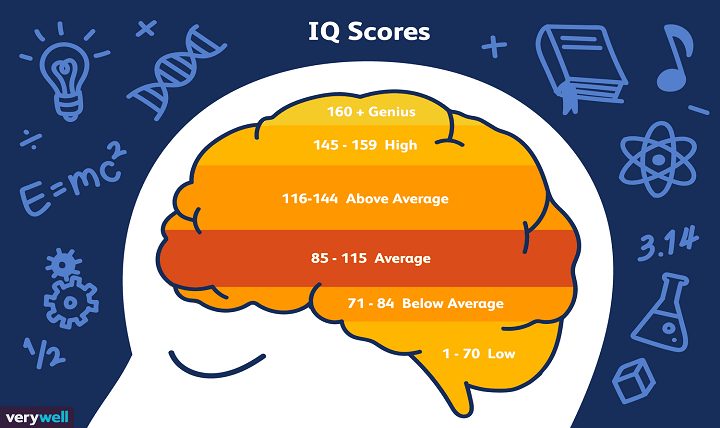IQ is a measurement of mental ability and IQ scales measure it. The WAIS-IV, for example, is a collection of 10 subtests and five supplemental tests. It measures the individual’s abilities in four areas of intelligence. The scores of these subtests are combined to form a Full-Scale IQ score. Another IQ test is the General Ability Index, which is based on scores in six subsets. It is particularly useful in identifying people with certain learning disabilities, as low scores may be indicative of a specific difficulty.
IQ Test Scores

IQ test scores are usually reported in percentiles. However, the ranges may vary depending on the type of test. The chart shows IQ scores on an X-axis, while the Y-axis represents the percent of the population with that score. While IQ scale ranges may differ from one test to the next, the chart does not take this into account. The scale ranges are calculated with a standard deviation of fifteen percent, so that scores in the top half of the IQ range are equivalent to a ten-point difference.
Dependent Ups and Downs of IQ Scores
IQ scores generally increase with age, with average scores of 109 for people between the ages of twenty to thirty-four. At thirty-four, average IQ scores begin to increase again. By 35 years of age, the average IQ score is 101, and it reaches a high of 107 for those between 45 and 54. Ultimately, a score of 120 is considered superior. It is a good measure of a person’s ability to learn, problem-solve, and think critically.
Beyond Traditional IQ Tests

IQ tests are not the only methods for measuring IQ. In addition to the traditional tests, the Wechsler Adult Intelligence Scale (WAIS) is one of the most widely used and accepted IQ tests. It was developed by David Wechsler in 1955 and is considered the gold standard of IQ tests. The fourth edition, WAIS-IV, was released in 2008.
IQ Scores Vary by Age
IQ scores differ between ages and gender. Women generally score in the 70s, while men tend to score in the high-eighties. While the range is wide, most adults fall in the 80-70 range. Those who score over one hundred will be considered geniuses. However, high-IQ individuals will need further investigation before they are classified as highly intelligent. For instance, the average IQ for 16 to eighteen-year-olds is 108 and for the 18-19-year-olds, it is 105.
The average IQ is 100, so anything over 100 is above average for the age group. The IQ score is a composite of multiple scores, so there is no one single IQ score. Questions on intelligence tests are designed to measure each category, such as verbal comprehension, working memory, and processing speed. IQ scores are averages, and they are calculated relative to the median of the population. IQ scores are still a common tool for educational services and job placement. The IQ scale has helped place many children into the correct educational setting, which is what they need to do.

